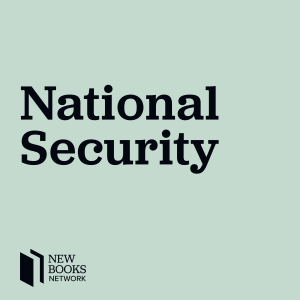
New Books in National Security
Science:Social Sciences

Oliver Kaplan, "Resisting War: How Communities Protect Themselves" (Cambridge UP, 2020)
 2020-04-07
2020-04-07
Download
Right click and do "save link as"
Reporters and scholars often focus on violence and victimization: “if it bleeds, it leads.” But unarmed civilians around the world often protect themselves against armed combatants using social processes to reduce the violence perpetrated against them. Oliver Kaplan’s case studies of Columbia – with extensions to Afghanistan, Pakistan, Syria, and the Philippines – demonstrates how, why, and when civilians effectively resist the influence of armed actors and limit violence.
In our conversation about his new book Resisting War: How Communities Protect Themselves (Cambridge University Press, 2020), Kaplan describes his interdisciplinary methodology that creatively combines fieldwork, statistics, and scholarship from sociology, psychology, history, and political science. Kaplan insists that civilians are not helpless victims but deployers of covert and overt nonviolence strategies that preserve and cultivate autonomy. He explains how local social organization and cohesion allows civilians to create strategies that help them protect themselves (and human rights more broadly). Kaplan’s book traces the strategies that help civilians enhance their autonomy – particularly the ways in which they affect armed actors’ behavior, capabilities, and ways of thinking. The book contributes to the study of human rights, conflict processes, peace studies, and order in weak states.
Susan Liebell is associate professor of political science at Saint Joseph’s University in Philadelphia. She is the author of Democracy, Intelligent Design, and Evolution: Science for Citizenship (Routledge, 2013).
Learn more about your ad choices. Visit megaphone.fm/adchoices
view more
More Episodes
012345678910111213141516171819
Create your
podcast in
minutes
- Full-featured podcast site
- Unlimited storage and bandwidth
- Comprehensive podcast stats
- Distribute to Apple Podcasts, Spotify, and more
- Make money with your podcast
It is Free
- Privacy Policy
- Cookie Policy
- Terms of Use
- Consent Preferences
- Copyright © 2015-2024 Podbean.com





